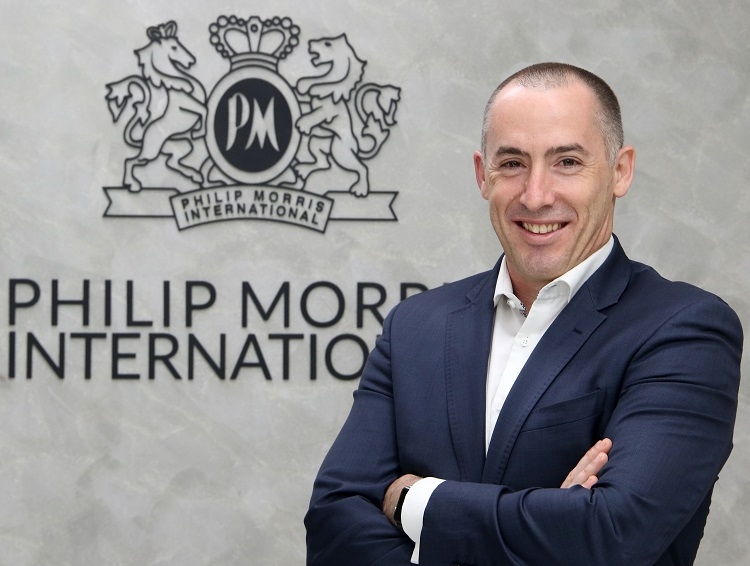How to realise a smoke-free environment
 |
| Brett Taylor |
What is the Philip Morris approach towards World No Tobacco Day 2019?
First and foremost, we believe people should stop smoking and we support measures to discourage people from starting. But despite such measures around the world, the World Health Organization estimates more than one billion people to still be smoking in 2025, around the same number as today. So from a public health viewpoint alone, it’s vital we deliver acceptable alternatives to smoking.
20 years ago, some of our company’s fiercest critics challenged us to produce less harmful products. We listened and accepted the challenge and began researching, developing, and scientifically assessing smoke-free products as part of our commitment to creating a smoke-free future, which is now becoming a reality.
In fact, we are staking our company’s entire future on a line of smoke-free products that are a better choice than cigarettes for the millions of men and women who currently smoke. By encouraging men and women who do not quit to adopt smoke-free alternatives instead, we can eventually leave cigarettes behind.
That’s why we believe it’s time to evolve World No Tobacco Day into World No Smoking Day. It’s also why we rolled out the initiative Unsmoke, dedicated to smokers and those who care about them. Through this initiative, we want to bring together a community of people who can make a difference, and accelerate change for smokers who would otherwise continue smoking. The general motto is “If you do not smoke, do not start. If you smoke, quit. If you do not quit, change”.
What advice do you have for global smokers who want to switch to better alternatives? What about people who are affected by second-hand smoking?
The best thing any smoker around the world can do is to quit tobacco and nicotine altogether. However, in any given year, a large proportion of adult smokers will continue smoking. It makes sense that these adult smokers are given the opportunity to switch to better alternatives, rather than continue smoking cigarettes.
To avoid the effects of second-hand smoke to non-smokers, first and foremost is the responsibility of the smokers. They should strictly follow regulations and smoke only where it is permitted by law. Smokers could also explore the opportunity to switch to smoke-free alternatives which are a better choice than cigarettes, and were proven to have no negative impact on indoor air quality.
In terms of experience learned elsewhere so far, what is the scientific evidence behind some of the smoke-free alternatives?
Many experts and health authorities around the world, such as the UK Royal College of Physicians, Public Health England, and the Food and Drug Administration in the US have recognised that smoke-free alternatives represent a revolutionary opportunity to reduce the harm caused by cigarette-smoking.
Providing less harmful alternative products for smokers is the focus of many international tobacco companies, where we are developing novel products that we believe will appeal to current adult smokers, but with a risk profile that is significantly lower than cigarettes. Heated tobacco products are among those products. The key difference between heated tobacco products and conventional cigarettes is that they do not burn and therefore do not produce either smoke or ash. As a result, levels of toxic substances are reduced significantly in comparison to cigarettes.
Currently, 47 countries in the world have acknowledged and legalised heated tobacco products and there are more than 10 million users to date, 70 per cent of whom have stopped smoking and completely switched to heated tobacco products. Recently, the US Food and Drug Administration (FDA) announced the permission of sale of IQOS, our most advanced heated tobacco product, in the United States. In the FDA’s announcement, they stated: “authorising these products for the US market is appropriate for the protection of the public health because, among several key considerations, the products produce fewer and lower levels of some toxins than combustible cigarettes.”
How can authorities regulate these new options across markets?
Experience from other countries has revealed that these products are regulated differently from conventional cigarettes. In all the countries that already allow smoke-free products, governments support a legislative framework whereby e-cigarettes and heated tobacco products are controlled proportionate to their particular risks, allowing adult smokers to have appropriate access to these products.
The role of regulators and public health officials is vital to getting better, less harmful alternatives to market sooner rather than later, and ensuring smokers have accurate information about their benefits.
Specifically, health warnings for novel tobacco products should be different and distinct to the ones applicable to cigarettes, and novel tobacco products might be taxed differently from conventional cigarettes. This is a common approach being shared by countries that already allow the marketing and sale of novel tobacco products.
What the stars mean:
★ Poor ★ ★ Promising ★★★ Good ★★★★ Very good ★★★★★ Exceptional
Related Contents
Latest News
More News
- Digital shift reshaping Vietnam’s real estate brokerages (December 31, 2025 | 18:54)
- Allen & Gledhill recognised as Outstanding M&A Advisory Firm (December 18, 2025 | 14:19)
- Inside Lego Manufacturing Vietnam (December 18, 2025 | 11:45)
- The next leap in Cloud AI (December 11, 2025 | 18:19)
- Vietnam’s telecom industry: the next stage of growth (December 11, 2025 | 18:18)
- Five tech predictions for 2026 and beyond: new era of AI (December 11, 2025 | 18:16)
- CONINCO announces new chairman and CEO (December 10, 2025 | 11:00)
- How AWS is powering the next-gen data era (December 09, 2025 | 13:14)
- Outlook in M&A solid for Singapore (December 08, 2025 | 10:31)
- Vietnamese firms are resetting their strategy for global markets (December 05, 2025 | 17:04)

 Tag:
Tag:




















 Mobile Version
Mobile Version